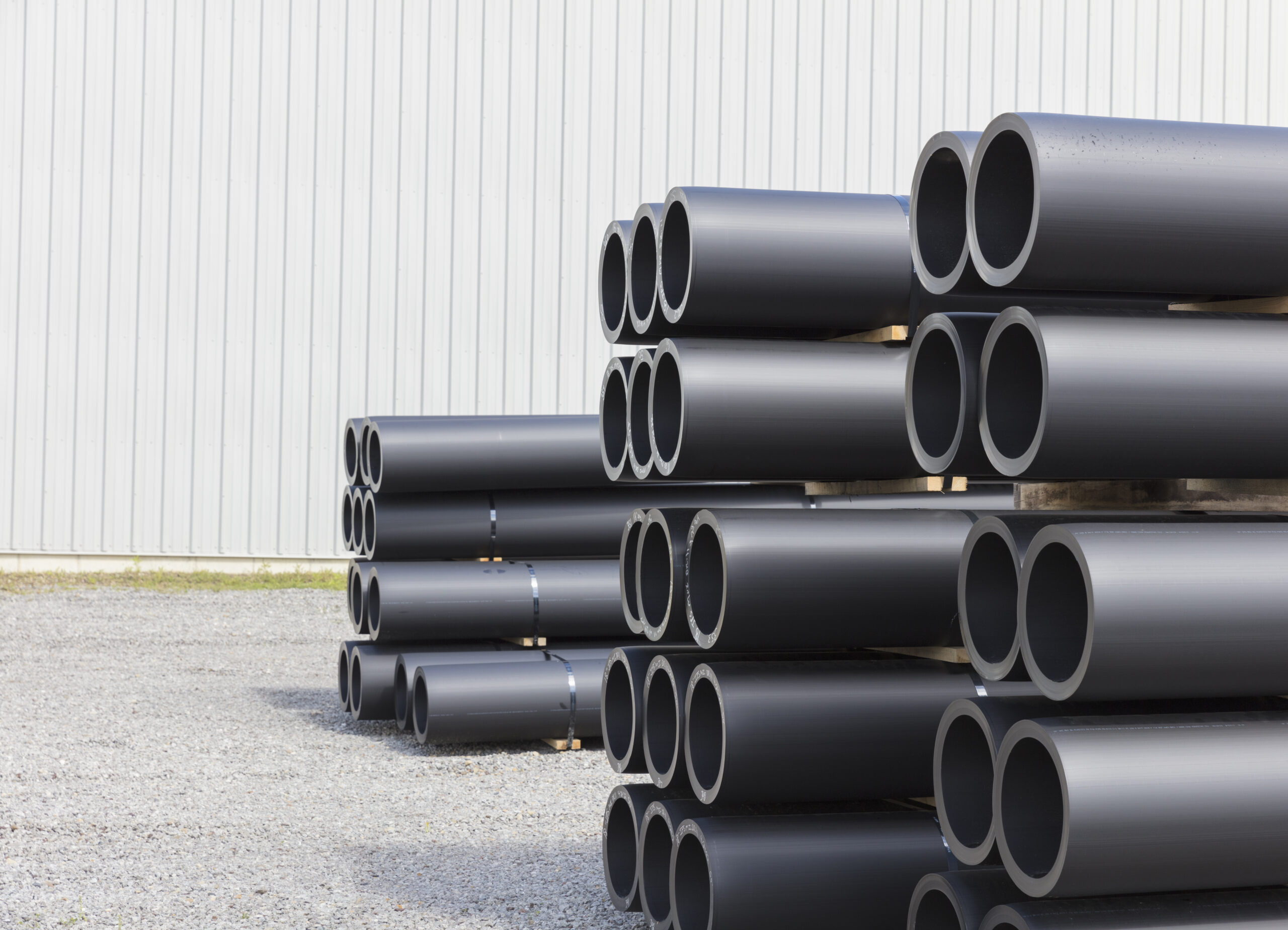Comprehending the Key Conveniences of HDPE Pipeline for Water and Wastewater Monitoring
The usage of HDPE pipeline in water and wastewater management provides many advantages that merit consideration. Its extraordinary durability and long lifespan make it a preferred option for many jobs. Furthermore, the product's resistance to corrosion and chemical damage enhances its dependability in different environments. The benefits extend past simply longevity and resistance. hdpe pipe in stock Midland TX. Exploring its cost-effectiveness and ecological effect exposes even extra engaging factors for its widespread fostering in modern-day infrastructure
Remarkable Durability and Long Life

HDPE pipeline sticks out for its extraordinary toughness and durability, making it a recommended selection in water monitoring systems. Created from high-density polyethylene, these pipelines can stand up to considerable pressure and stress, making sure trusted performance gradually. Their robust nature enables them to endure severe environmental conditions, consisting of temperature level changes and soil movements, which can cause various other products to fail.
The lifespan of HDPE pipes often goes beyond 50 years, offering a cost-effective option for communities and industries alike. Additionally, the material's lightweight residential properties simplify installment, lowering labor costs and durations. This toughness reduces the demand for frequent repair work or replacements, better boosting its economic appeal.
In water management applications, the reliability of HDPE pipelines implies less interruptions and enhanced service continuity, making them important to sustainable infrastructure advancement. The combination of sturdiness and long life solidifies HDPE's duty as a foundation in reliable water monitoring remedies.

Resistance to Deterioration and Chemical Damage
While lots of products succumb to rust and chemical damages over time, HDPE pipelines show remarkable resistance, making them optimal for numerous water management applications. This resilience originates from the molecular structure of high-density polyethylene, which is inherently non-reactive and does not wear away like steels or degrade from direct exposure to extreme chemicals. Because of this, HDPE is highly effective in atmospheres with hostile compounds, such as wastewater systems that might consist of acids, bases, and natural solvents.
Additionally, HDPE pipes can hold up against ecological variables such as dirt level of acidity and saline problems, better boosting their viability for varied applications (Pipe Supplier American Plastics Midland). Their capacity to keep structural honesty over time decreases the threat of leaks and failures, which is essential in ensuring the security and integrity of water distribution and wastewater management systems. The resistance to deterioration and chemical damages markedly adds to the overall performance and durability of HDPE piping options.
Cost-Effectiveness and Financial Benefits
When thinking about the financial implications of water monitoring systems, the cost-effectiveness of HDPE pipelines becomes evident. These pipelines provide lower installment and maintenance expenses contrasted to standard materials like metal or concrete. Their light-weight nature simplifies transport and installment, resulting in lowered labor costs. In addition, HDPE pipes display a lengthy life expectancy, typically surpassing half a century, which translates to less substitutes and lasting savings.
In addition, the resistance of HDPE to deterioration and chemical damages reduces the requirement for pricey repair services and substitutes. The pipes also support reliable water flow, lowering energy prices associated with pumping systems. By minimizing leakages and water loss, HDPE pipelines add to substantial economic benefits for districts and sectors alike. Generally, the first investment in HDPE piping can yield significant economic returns over the life expectancy of the water management system, making it a sensible option for sustainable facilities development.
Environmental Sustainability and Lowered Effect

Versatility and Flexibility in Installation
Due to their one-of-a-kind residential properties, HDPE pipelines supply amazing adaptability and versatility in installment, making them appropriate for a vast array of applications. Their light-weight nature enables much easier handling and transport, lowering labor expenses and installment time. HDPE pipes can be curved and shaped to fit numerous surfaces and task demands, which is particularly useful in testing settings.
In addition, their resistance to corrosion and chemical damage enables installment in varied settings without the requirement for specialized safety finishings. The ability to fuse joints produces a continual, leak-free system, boosting the general integrity and integrity of the setup. HDPE's flexibility additionally fits ground activity, minimizing the risk of damage in locations vulnerable to shifting dirt. Overall, these qualities make HDPE pipelines not only versatile yet likewise a preferred option for water look what i found and wastewater management systems.
Often Asked Inquiries
Exactly How Does HDPE Pipeline Contrast to PVC in Water Monitoring Applications?
HDPE pipe provides remarkable versatility, resistance to deterioration, and durability contrasted to PVC. Its lighter weight promotes less complicated setup, while its long lifespan decreases substitute prices, making HDPE a recommended selection in water administration applications.
What Is the Life Expectancy of HDPE Pipeline Under Regular Problems?
Under regular conditions, HDPE pipelines can have a lifespan varying from 50 to 100 years. Their resilience and resistance to rust add to their long-lasting efficiency in various applications, making them a trusted selection for framework.
Are HDPE Pipes Recyclable After Their Solution Life?
Yes, HDPE pipes are recyclable after their life span. hdpe pipe fittings Midland TX. They can be refined and repurposed into new items, substantially decreasing environmental effect and advertising sustainability within the sector, making them an environment-friendly option for piping remedies
What Is the Installation Process for HDPE Pipeline?
The installment procedure for HDPE pipelines entails website preparation, trenching, pipeline combination or mechanical joining, backfilling, and stress screening. Correct useful content methods guarantee a resilient and efficient system for carrying water and wastewater properly.
Can HDPE Water Lines Be Utilized for Both Drinkable and Non-Potable Water Solutions?
Yes, HDPE pipelines can be used for both potable and non-potable water supply. Their flexibility, longevity, and resistance to rust make them ideal for numerous applications, ensuring risk-free and efficient transport of water in different contexts.